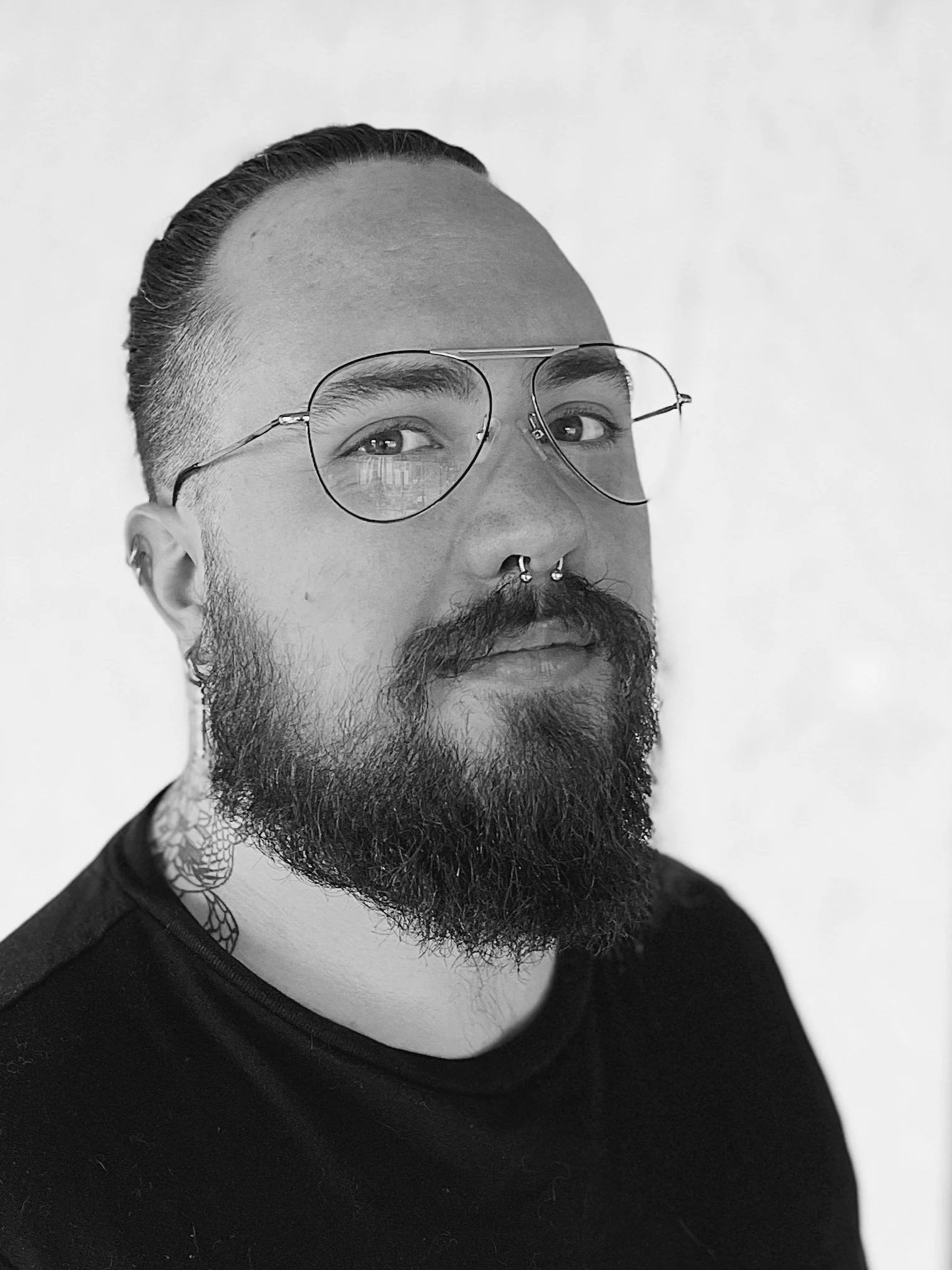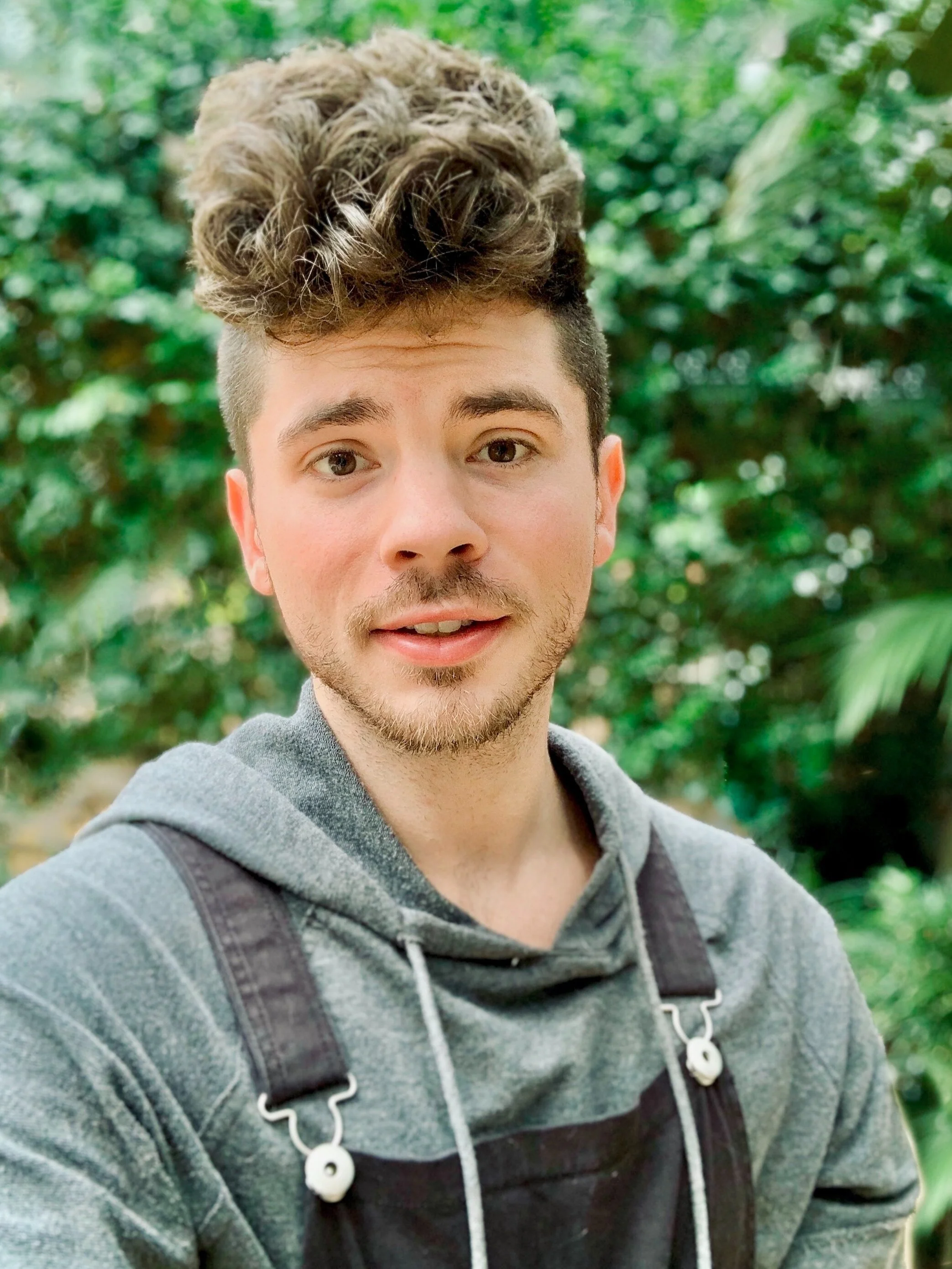
Music: Tom Kitt Book: Brian Yorkey
-
Next to Normal, explores how one suburban household copes with crisis and mental illness. Winner of three 2009 Tony Awards, including Best Musical Score and the 2010 Pulitzer Prize, Next to Normal was also chosen as "one of the year's ten best shows" by critics around the country, including The Los Angeles Times, The Washington Post, Rolling Stone and The New York Times.
Dad's an architect; Mom rushes to pack lunches and pour cereal; their daughter and son are bright, wise-cracking teens, appearing to be a typical American family. And yet their lives are anything but normal because the mother has been battling manic depression for 16 years. Next to Normal takes audiences into the minds and hearts of each character, presenting their family's story with love, sympathy, and heart.
-
Diana Goodman, a suburban mother, suffering from bipolar disorder, stays up late awaiting the return of her son Gabe, who has broken curfew. Also awake is Diana’s daughter Natalie, an overachieving high school student who is stressfully studying for an upcoming test. Diana encourages her daughter to take a break and rest, and soon after, Gabe returns home, and Diana’s husband Dan awakes to help the family prepare for the day (“Just Another Day”).
Diana prepares a meal for her family, but Dan and Natalie stop her when they realize the sandwiches she is making cover every kitchen surface. As Dan helps the disoriented Diana, Natalie and Gabe leave for school. Natalie releases some pent-up anger and frustration as she practices for an upcoming piano recital in the school’s music room (“Everything Else”), where she meets Henry, a fellow classmate who has been admiring Natalie from afar.
Meanwhile, Diana repeatedly visits her psychiatrist’s office, where she has been prescribed a variety of medications, though they all prove to cause debilitating physical side effects; Dan waits through her appointments in the car while he questions his own sanity (“Who's Crazy?/ My Psychopharmacologist and I”). When Diana is given a medication that numbs and rids her of all feelings, the doctor pronounces her stable and sends her on her way.
After witnessing a romantic moment between Natalie and Henry (“Perfect For You”), Diana mourns the loss of her old life, longing for the days she lived in both pain and joy, as opposed to the numbness her new medication has caused (“I Miss the Mountains”). At Gabe’s suggestion, she flushes her medications.
Meanwhile, Dan arranges a family dinner, inviting Henry to join them (“It's Gonna Be Good”). When Diana brings a cake for Gabe’s birthday to the table, Dan gently reminds her that Gabe died nearly sixteen years ago, and her visions of him throughout the show have only been hallucinations.
After an upset Natalie runs to her bedroom, Dan clears off the dinner table while Diana tells him she has stopped her medication. As he tries to empathize with her, she becomes angry, saying he could not possibly understand the pain she is going through (“You Don't Know”).
Dan begs her to let him help however he can, reminding her of his faithfulness and patience thus far, but is interrupted by a vision of Gabe, whom only Diana can see. Diana immediately clings to her son, rejecting Dan’s offer of comfort (“I Am the One”).
Upstairs, Natalie vents to Henry over her mother’s attachment to the dead Gabe over her (“Superboy and the Invisible Girl”). Diana overhears their conversation and offers the only comfort she can give, telling Natalie, “I love you as much as I can.”
Diana visits a new doctor, who performs talk therapy and hypnosis on her. During their session, she sees Gabe, who asserts his dominance over her and the control he has in her life. Diana reveals intimate details about the effects of her illness, saying that she could not hold Natalie in the hospital when she was born.
Meanwhile, Natalie botches an important piano recital upon discovering her parents are not in the audience (“Make Up Your Mind/ Catch Me I’m Falling”).
Diana’s doctor encourages her to go home, spend time with Natalie, and clean out a box of Gabe’s old things in an attempt to let him go. Diana agrees but is confronted with a hallucination of Gabe while sorting through a box in their basement (“I Dreamed a Dance”).
Gabe convinces her to commit suicide, saying it is the only way they can be together (“There's a World”).
Diana is hospitalized after her suicide attempt fails, and Dan is told by Dr. Madden that electro-conclusive therapy is one of the only options they have left. Dan returns home to clean up the scene of his wife’s attempt at suicide, narrowly avoiding a breakdown of his own as he reminisces about the years spent with Diana (“I've Been”). Natalie finds him and is angry to discover that he has agreed to the doctor’s recommendation of shock therapy.
Upon returning to the hospital, he finds that Diana has become aggressive with the staff for wanting her to sign the confirmation papers, likening the idea of shock therapy to its depiction in the film One Flew Over the Cuckoo’s Nest (“Didn't I See This Movie?”).
However, after clearing the room of doctors, he manages to convince her of the necessity of this treatment, saying it is the only way they can get back to normal (“A Light in the Dark”). Reluctantly, Diana agrees and signs the papers, embracing Dan as the first act comes to a close.
-
Diana receives a series of ECT treatments over two weeks. Meanwhile, Natalie experiments with drugs and frequently goes clubbing, being rescued most nights by Henry, who sees her home safely. On one occasion, she seems to share a hallucination with her mother (“Wish I Were Here”).
Upon Diana’s return home from the hospital, it is revealed that she has lost her memories of the last nineteen years due to the shock therapy - including the memory of her deceased son (“Song of Forgetting“).
Henry, who has been finding Natalie passed out at clubs and driving her home, asks Natalie to the upcoming school dance, an invitation she immediately declines (“Hey #1”).
Meanwhile, Dan questions Dr. Madden over Diana’s memory loss, learning it is a relatively common side effect of ECT (“Seconds and Years”).
Because Gabe’s death started a lifetime of depression, Dan hesitates to remind her. At home, he and Natalie help Diana sort through a box of pictures and memories of her old life, leaving out any mention of Gabe’s existence (“Better Than Before”).
However, Diana is briefly confronted afterward by Gabe, who hints that she has forgotten a vital part of her life (“Aftershocks”).
Meanwhile, Henry invites Natalie to the dance again but is turned down again (“Hey #2").
Diana visits Dr. Madden, who accidentally reveals the existence of her son, unaware that Dan has not yet done so (“You Don't Know (reprise)”).
After learning this, Diana returns home and searches through Gabe’s old belongings, finding the music box that helped him sleep as an infant. When Dan finds her revisiting the night their son died, he reluctantly reminds her that their son had died of an illness all the doctors missed (“How Could I Ever Forget?”).
Diana confusedly admits she recalls hallucinating Gabe as a teenager, and Dan frantically says they will get her to the doctor and do more ECT (“It’s Gonna Be Good (reprise)”), which leads to a heated argument between the two that Natalie witnesses the peak of.
After Natalie runs upstairs to her bedroom, Diana questions Dan about why he stays, despite everything she puts him through and all the pain they have experienced together. He reminds her of their wedding vows and promises to see their relationship through, no matter much she pushes him away. Upstairs, Henry makes a similar pledge to Natalie (“Why Stay?/A Promise”).
However, Diana again sees Gabe and is immediately entranced by him, drawn away from Dan (“I'm Alive”).
Though Dan begs her to stay, Diana leaves and visits Dr. Madden, frustrated that years of treatment haven’t seemed to improve her condition, and wonders if her grief over losing her son should truly be medicated (“The Break”).
Dr. Madden pleads with her to stay with him, recommending more shock treatment and other medications, but she leaves the appointment (“Make Up Your Mind/Catch Me I’m Falling (reprise)”).
Upon returning outside, she connects with Natalie for the first time, noting the similarities between the two of them and truly making an effort to connect with her for possibly the first time. They embrace and agree that somehow they will get by, and Diana drives Natalie to the dance to meet Henry (“Maybe”).
At the dance, Natalie voices her concerns to Henry that she will someday end up with the same issues as her mother, though Henry promises to stand by her no matter what, and the two kiss (“Hey #3/ Perfect For You (reprise)”).
Diana returns home and tells Dan she is leaving him, saying that though she still loves him, they must finally come to terms with their grief on their own (“So Anyway”).
Devastated, Dan looks back on his years of faithfulness to her and sees Gabe for the first time. (“I Am the One (reprise)”).
The two share a moment, and Dan says his name for the first time during the show. Gabe disappears, and Natalie returns home to find her mother is gone. She continues her relationship with Henry, and Diana has temporarily moved in with her parents, still depressed but more hopeful than ever.
Dan visits Dr. Madden, who gives him the name of another psychiatrist he can talk to. Gabe is seen by the audience one final time, relaying a message of hope as opposed to the threatening, ominous persona he has taken most of the show, and the family adjusts to their new way of life (“Light”).
-
Bipolar Disorder is a condition in which an individual goes back and forth between very good or manic moods and somber, irritable moods or depression.
The "mood swings" between mania and depression can be rapid. The Disorder affects men and women equally and usually begins to appear between the ages of 15 and 25. The exact cause is unknown, but the Disorder is known to occur more often in relatives of people with bipolar Disorder.
Bipolar Disorder is classified into different types. People with Bipolar Disorder Type I have had at least one manic episode and periods of significant depression. In the past, Bipolar Disorder Type I has also been called manic depression. People with bipolar disorder type II have never had full mania. Instead, they experience periods of high energy levels and impulsiveness that are not as extreme as mania (hypomania)—these periods alternate with episodes of depression.
A mild form of Bipolar Disorder called cyclothymia involves less severe mood swings. People with this form alternate between hypomania and mild depression.
People with Bipolar Disorder Type II or cyclothymia may be wrongly diagnosed as having depression.
The symptoms of Bipolar Disorder are numerous. They include distractibility; sleeplessness; poor judgment; lack of temper control; reckless behavior and general lack of self-control; binge eating, drinking, and/or drug use; sex with multiple partners (promiscuity); spending sprees; significantly elevated moods; excess activity (hyperactivity); increased energy; racing thoughts and extreme talkativeness; inflated self-esteem (false beliefs about self or abilities); and severe agitation or irritation. An individual may be diagnosed with Bipolar Disorder on the basis of different combinations of these symptoms and behaviors.
-
Electroconvulsive Therapy (ECT) is a treatment in which electric currents are applied to the head to induce minor seizures in specific patients. These patients include those who are mentally diagnosed with severe depression and other mental illnesses or conditions, including schizophrenia, obsessive-compulsive disorder, and Tourette syndrome. This treatment is administered after patients are given sedatives and/or muscle relaxers. Depending on the individual patient's case, ECT can be administered in different amounts, with different frequencies, and for different durations. It is often used together with other forms of treatment, including drugs and talk therapy.
ECT has been used since the 1930s when neuropsychiatrists first developed it in Italy. Despite almost a century of use, there is still no theory to explain how the process works. Supposedly, it causes alterations in how the brain responds to chemical signals. Mental health providers agree that it works best in producing short-term results, but it is unclear what its long-term effects are.
There are many positive aspects to electroconvulsive therapy: it is quick and easy to administer, fairly efficient in achieving results, and not reliant on patients taking a confusing variety of pills daily. On the other hand, electroconvulsive therapy has side effects: patients have a frequent loss of memory, including disorientation from family affiliations, location, and time of year; they experience headaches, stiffness, and confusion. Also, ECT can be fatal; the estimated death rate is 1 out of 1,000.
There are strong opinions on both sides of the ECT issue. Some people are appalled at the idea of basically ‘electrocuting’ patients, even if in minimal doses, and they worry about the long-term effects and other aspects that are not yet known. But many people feel that anything that can work to ease patients’ suffering should be used.
-
I want to begin this reflection by acknowledging that this production means a lot to many people. This show brought mental illness to the stage; a new level of visibility to our struggles and the struggles of people we know and love. Next to Normal is raw, vulnerable, and honest. All of these qualities the Wildwood values, which is why soon after Wildwood's founding, dreams were weaved of a future, far-off production of this piece. We are thrilled to finally be producing this show and want to take a moment to acknowledge it is time, especially as a theatre community, to acknowledge that while groundbreaking, Next to Normal is also flawed. Next to Normal shows a middle-class, suburban, nuclear family, which is a minimal, privileged perspective narratively.
Imagine how this story would change if Diana didn't have health insurance. Or if it was written that the Goodman family was BIPOC. The potential for the disparity in the types and quality of care Diana received is astounding. As a cisgender, middle-ish class, white person, I won't pretend to understand these complexities. We need to see these more nuanced stories and talk about these issues.
As Henry says, "The environment is a disaster. Sprint is a disaster."
America's mental healthcare system follows suit.
We put Next to Normal on a pedestal for talking about mental illness, but it only barely scratches the surface.
We barely begin to delve into Diana's story, and then we hear her symptoms. We see her being offered medications with fatality as a side effect. She's barely discernible to us yet and gets reduced to a diagnosis, a list of symptoms, and a medication regimen.
But at the end of the day, the story sparks a conversation about how mental illness impacts family life and interpersonal relationships. These are essential conversations to have as a society. Regardless of the limitations, as mentioned earlier, it gives us a beautiful reminder that healing journeys aren't predictable. We don't know how Diana's story or her family ends, and that's okay. We know that she and her family are on a path toward repairing what is broken, and that's enough. I desire that you feel less alone in seeing their struggles. My goal is for you to share in the hope they feel from shedding insincerity and deciding it is okay to be happy you're alive.
Sarah Catcher | Sage

The company
Meet The Keepers
Lux Mortenson | Diana
Lux (they, them) is truly stepping into a dream with Next to Normal, and they can't imagine better guardians of its message than Wildwood Theatre. They hope the show stirs some empathy for those who struggle with mental illness and those who love them. "When we open up our lives....and fight that fight, there will be Light." Read their interview with BroadwayWorld.
Riley Webster | Dan
Riley (he, him) is ecstatic to be joining the Wildwood family. Having experienced mental illness, Riley finds it extremely important to advocate for those experiencing mental health issues. Next to Normal gives excellent insight into what living with mental illness can look like and helps destigmatize all surrounding it.
Joseph Klinker | Gabe
Joe (he, him) is excited to be making his Wildwood debut! He has connected with Wildwood and Next to Normal more than he imagined. Joe shares that Next to Normal beautifully displays some challenges and struggles one could face with mental illness. The Wildwood is helping him and his cast to bring that message to light.
Amani Yassin | Natalie
Amani (she, her) is making her debut at The Wildwood Theatre, and she feels honored to support their mission. In her work as a Child and Family Therapist, she sees firsthand the importance of detangling the stigma around mental health. She is excited to join this powerful cast and hopes the audience leaves with a new perspective on mental health.
Jack Bonko | Henry
Next to Normal is Jack Bonko's (he, him) debut at Wildwood Theatre. He is so blessed to be a part of this production with this company. He hopes audiences leave with a new lens on mental health awareness and the power of the arts and storytelling.
Bee Tremmel | Dr. Madden
Bee couldn't be more honored to be telling this particular story with this particular group of people. The players on and off stage have made this a truly unique and special retelling of a story Bee has loved since they saw Alice Ripley play Diana in 2010. Bee is making her Wildwood debut and couldn't feel more at home. She hopes you enjoy the show and would like to remind everyone, "It's just another day... Living on a latte and a prayer."
Meet The Guardians
“A feel-everything musical which asks you, with operatic force, to discover the liberation in knowing where it hurts.”
Melissa Warhol | guardian of song
Melissa (she, her) is honored to be working with The Wildwood Theatre for the first year. She is classically trained in voice and piano and spends most of her time directing for various theatre groups. As a young child, she learned that music and the arts are powerful ways to spread empathy and healing powers. Next to Normal has been a very special project, connecting with the themes as she and her family constantly balance mental and physical challenges. She hopes this beautiful work's gifts and The Wildwood will stay with you forever.
Claudia Errickson | Guardian of light and stage
Jackie o’neill | guardian of intimacy
Jackie graduated from the University of North Dakota with degrees in Musical Theater Performance, Communications, and Dance Choreography. Jackie's greatest passion is creating a safe working environment through intimacy and consent education.
Booth
Emily Najjar-Field | Light Board Operator & Booth Supervisor
Neiji | Sound Board Operator
Pit
Doug Nelson | Bass
Jay Weiler | Drums & Percussion
Amy Hinrichs | Cello
Callie Hensler | Keyboard
Zack Stachowski | Guitar
Martha McDermott | Violin
Meet The Sages
“Next to Normal is steeped in an inescapable, aching compassion for people crippled by pain.”
sarah catcher | director
David albino | production manager
David founded the Wildwood Theatre in 2017 because he grew up struggling with mental health issues that were ignored or denied. When he found the theatre, he found an outlet for his emotions and the theatre family where he felt supported without judgment.
David then went on to work in the mental health field and came up with the idea to call on the Wildwood to break down the stigmas surrounding mental illness.
David is honored to have the privilege to work in the light of this creative team who came day after day and just let it shine.


















